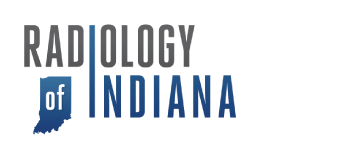Breast Cancer Prevention
What Breast Cancer Screening Options are Available?
At Radiology of Indiana, our whole service is geared around the needs of women who want fast, expert and accurate analysis and immediate treatment where required. Our approach is highly empathetic towards individual patients. Your specific needs are important to us and will guide your treatment every step of the way, from the moment you come into one of our offices. We are proud to offer both 3D and 2D mammography, as well as Breast MRI at our various locations.
What is a 3D Mammogram?
Digital breast tomosynthesis, also known as 3D mammography, is a revolutionary new screening and diagnostic breast imaging tool that has improved the early detection of breast cancer. During the 3D part of the exam, an x-ray arm takes multiple images in seconds as it sweeps over the breast. Images are displayed as a series of thin sliced layers that can be viewed by radiologists as individual images or in an interactive animation. 3D mammography is used in combination with 2D digital mammography.
What are the benefits of 3D Mammography?
A 3D mammogram is very similar to having a 2D conventional mammogram; however it is clinically proven to be more accurate. This type of mammogram allows doctors to examine your breast tissue layer by layer so that fine details are more visible and not hidden by the tissue above or below. 3D mammography is known as the biggest breakthrough in breast cancer detection in the last 30 years.
What is Breast MRI?
MRI is a sophisticated technology that uses a magnetic field to provide three dimensional images of the breast. Mammography remains the test of choice in screening for breast cancer, though in certain very high risk women, MRI may be helpful. MRI doesn’t replace mammography – it’s a different imaging technique that provides additional information for the detection and characterization of breast disease.
Who Should Use Breast MRI?
- Women recently diagnosed with breast cancer.
- Women at especially high risk for breast cancer, including:
- Those with altered BRCA1 and BRCA2 genes.
- First degree relative of altered BRCA1 and BRCA2 genes.
- Women with increased risk of breast cancer based on relatives diagnosed with breast cancer, history of ovarian cancer, and other factors.
- Women treated for breast cancer, to evaluate response to treatment.
- Women concerned about rupture of a silicone implant.
Where Can I Schedule Preventative Breast Screenings?
You can visit this page to schedule a 3D mammogram or a Breast MRI consultation.
